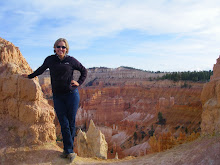The thing about nature isn’t that I don’t experience it, because I do. However, I tend to rush past, running along the trails and past the lake almost daily, in my quest for an elevated heart rate and some time alone to think. In this sense, nature’s nothing special, it seems like I rush through everything these days. Always in motion, like I’m afraid that if the inertia caught me, I’d never break free.
But tonight, for a change, I’m going to make myself slow down. Night is falling in a warm, romantic September way, and I’m running my new favorite route, across town and out along a country road to this beautiful little park with the dock out into the freshwater marsh. I write in my head as I run, enjoying myself as I hear fewer and fewer cars; more and more cicadas.
Descending into the empty park, I slow to walk and head out to the dock. The upland cicadas’ resonance is broken by sharper vibration from within the marsh grass. It’s the kind of overwhelming resonance that your body can’t help but internalize, and soon I’m not really hearing it anymore, just feeling it. Sitting on the dock, I take a deep breath. I was here with a lab class a few days ago, and I recall the professor saying that there’s not a wetland more beautiful than these tidal freshwater marshes. Alone in the dark, I’d have to agree.
But actually I’m no where near alone. There’s a goose calling across the lake, and several insect mating serenades are blending together with my heart rate, like standing too close to the speakers at a rock concert. Peripheral vision catches a water snake gliding across the surface: A short fat pug-nose snake trailing a long elegant ripple in the dark water. He disappears into the maze of Spartina and the blade-leafed plant whose seeds can float for years. Can you imagine that? Floating for years, waiting for the perfect place and the perfect time to make your attempt at life. And even then, so few succeed. Looking around at the plants thriving on the wetland edge, we forget about all of the other lost seeds, that these plants we see are the chosen ones, with the right combination of luck and genetic advantage to win the chance at living. Then again, I’m only here because I’m a winner too.
Focus. My legs are getting twitchy and my mind is jumping, ready to return to forward progress. I’m tempted for a moment to dive into the dark water and glide across, neglecting to consider the shallow bottom and that my pug-nose probably has friends. A car honks violently on nearby 199. I start to get indignant about the intrusion of the human world into my nature bubble, before I remember that it’s those ingrained distinctions: Us, in here, separate from Nature, it out there, that stands between us and a real chance for environmental change.
But I’m drifting off topic again, and back into my more pressing reality. Dinner to cook, reading for class, and Friday night plans to find. I almost don’t want to get up and run back to the busy world of people. Lengthening my stride, I’m running again instinctively, and whether he intended to or not, the goose honks again for my departure. Like a child, I wave towards the sound, and quicken my breath as I hit the uphill path.
4 years ago

